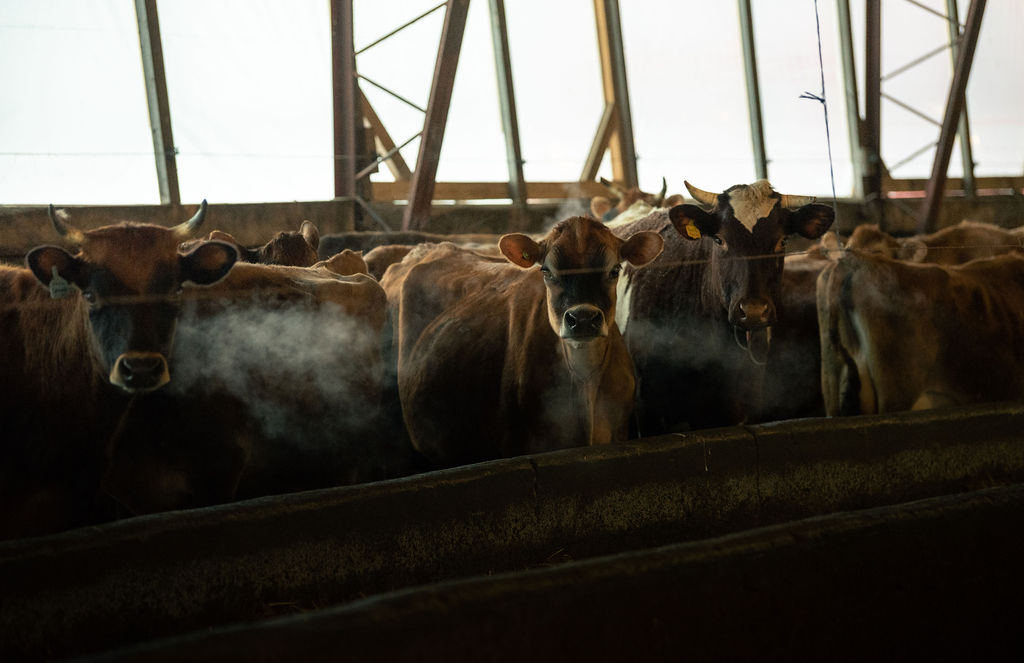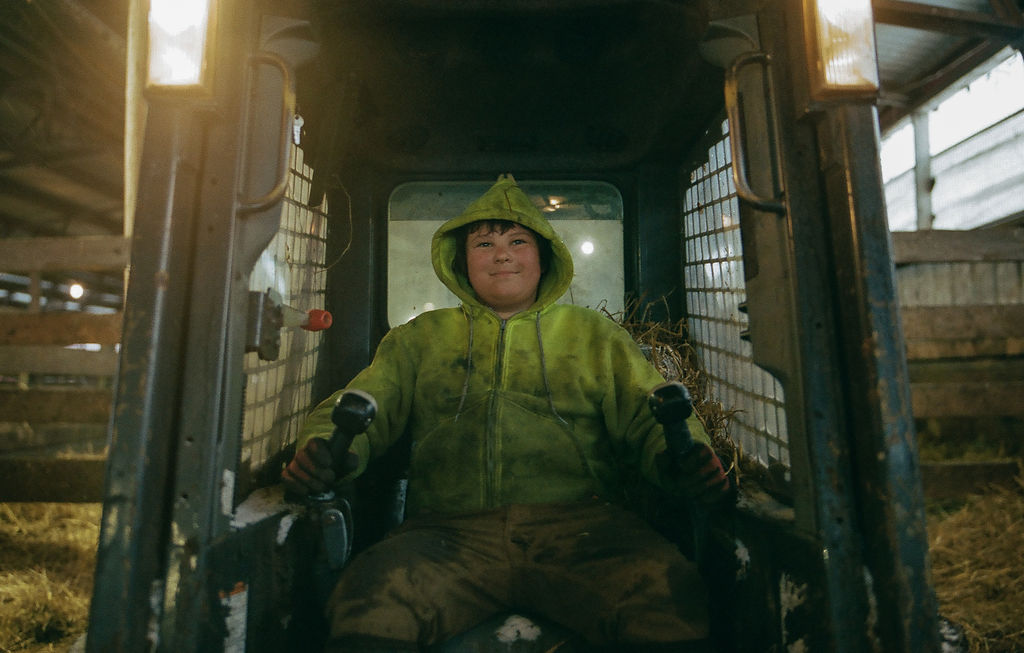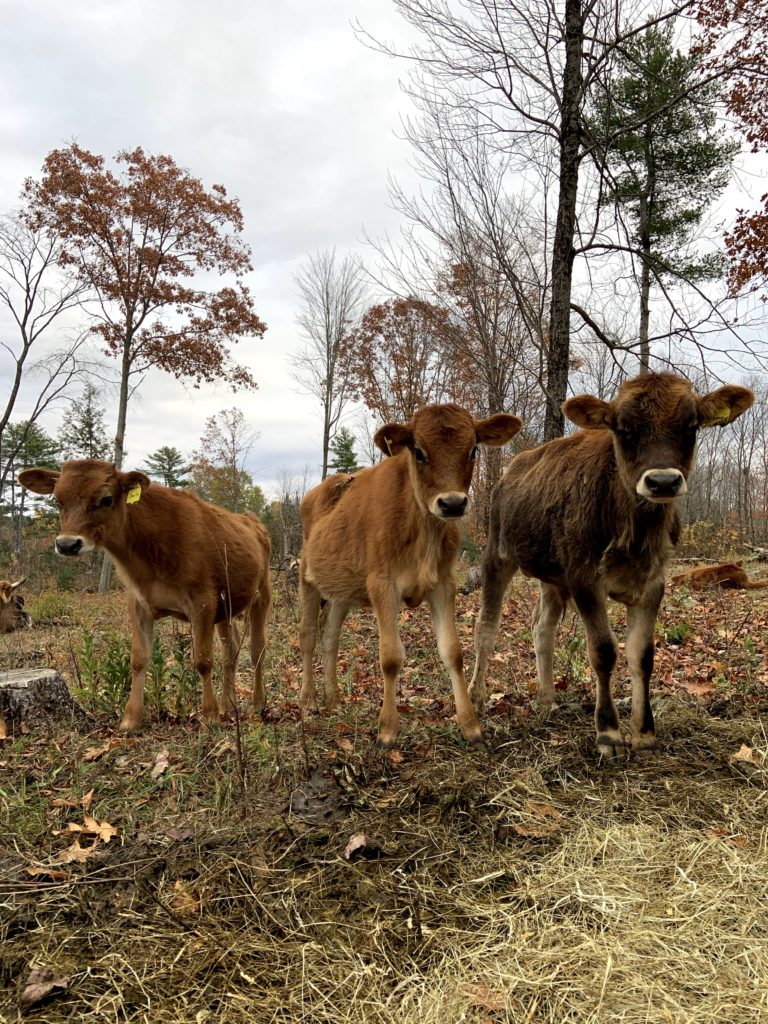Grass Fed Beef & Veal

Our cows are 100% grass-fed. They graze from May through October and move to a new piece of grass every day. During the winter they happily consume hay in the barn while the wind whistles and the snow falls outside. All of the cows and young stock have access to free choice salt and other minerals.
We raise Jersey cows because we believe they produce high quality raw milk. In addition, the utmost attention is given to ensure good health, comfortable housing, and clean milk handling.
We have been breeding for A2/A2 genetics since 2009. We believe that cows carrying these genes produce milk that is easier for humans to digest.
The veal calves are called rose veal because of their color. The calves are all raised on their mothers or nurse moms. They are rotationally grazed with their moms and have plenty of sunshine. With all this great food and attention, our Jersey bull calves make superb rose veal. The veal is delicate in taste compared to beef and takes seasoning well.
If you eat dairy the responsible thing to do is eat veal, too. Every year a cow has a calf in order to keep the milk flowing. About half of these calves are bull calves. On most farms bull calves are shipped off at a few days old. On our farm we raise all the calves and give them the best life possible. The extra bull calves become delicious rose veal.

The beef cows are started with the same care and attention as the veal calves and heifers. Once they no longer need milk, they are rotationally grazed and fed hay during the winter months.
Some of our beef is pure Jersey and some are beef breed Hereford crosses. During the grazing season, our beef cows are regularly moved to a fresh piece of pasture, just like the milk cows. We finish most of our beef in the fall for optimum meat flavor and quality.
Our Beef and Veal Products
- Certified Organic 100% Grass-Fed Beef
- Certified Organic 100% Grass-Fed Rose Veal
Cooking and Storage Tips
For more information, resources, tips and tricks, and recipes on handling our grass-fed beef, visit the Cooking and Storage page here.
Our organic and grass-fed animals were not raised in the same way as conventional beef, pork, chicken, or veal. Accordingly, several simple cooking and handling procedures will bring out the best flavors and textures in our meat.
Most importantly, let your meat thaw out completely before cooking it. Your meat will be most tender if you allow it to thaw in the fridge and rest up to one week before cooking. If you try to cook grass-fed meat that’s still partially frozen, the texture will suffer.
If you do need to hasten the thawing process, put the frozen meat in a bowl of cold water on the counter. We really recommend this technique only for ground beef or sausage.
